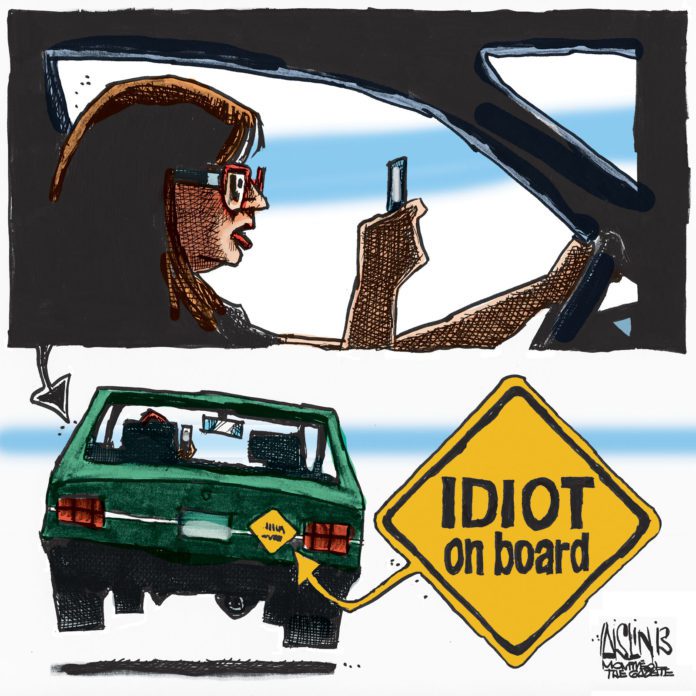BY DAVID PERRYMAN
 When I hear the oriental proverb about the straw that broke the camel’s back, I have a tendency to focus on the straw rather than the camel. A strong camel is an asset but so is the straw. Otherwise, the camel would not have been used for its transport.
When I hear the oriental proverb about the straw that broke the camel’s back, I have a tendency to focus on the straw rather than the camel. A strong camel is an asset but so is the straw. Otherwise, the camel would not have been used for its transport.
The proverb applies to the impetus for change and sometimes positive change is delayed because of the strength of the camel’s back. One change that faced stiff opposition was the passage of Oklahoma’s texting bill. As is evidenced by the name of the bill, the Trooper Nicholas Dees and Trooper Keith Burch Act of 2015, the proverbial straw that broke the opposition was a horrible accident.
In its final form, the new anti-texting bill that I co-authored and which will go into effect on Nov. 1 is a “primary offense” bill, meaning that a citation may be issued even in the absence of any other illegal activity by the driver.
The text of the bill makes it a $100 [non-point] offense for any person to operate a motor vehicle on any street or highway within the state while using a hand-held electronic communication device to manually compose, send or read an electronic text message while the motor vehicle is in motion.
A text message is broadly defined as “a text-based message, instant message, electronic message, photo, video or electronic mail.”
The driver will not commit an offense if they are using the cell phone or electronic communication device for the sole purpose of notifying a 911 operator or dispatcher or a medical provider or a fire department or law enforcement agency of an imminent emergency situation.
The new law defines a “cellular telephone” as an analog or digital wireless telephone authorized by the FCC to operate within the frequency bandwidth reserved for cellular phones. This definition was intentionally crafted so that the use of ham and citizen band radios would not be affected.
Composing, sending or reading a text messages is defined as “the manual entry, sending or retrieval of a text message to communicate with any person or device.”
An electronic communication device means “an electronic device that permits the user to manually transmit a communication of written text by means other than oral transfer or wire communication.”
It does not include a device that is physically or electronically integrated into a motor vehicle or a voice-operated global positioning or navigation system that is affixed to a motor vehicle, or a hands-free device that allows the user to write, send or read a text message without the use of either hand except to activate, deactivate or initiate a feature or function.
Cities and towns are authorized to adopt and enact ordinances to be enforced by local law enforcement agencies so long as the ordinance reflects the language of the statute and the fines and penalties are not more stringent than provided for in state law.
– David Perryman, a Chickasha Democrat, serves District 56 in the Oklahoma House of Representatives







